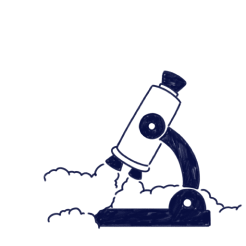Getting through an ISO audit is one of the most important defining moments for any life sciences company. Whether you’re manufacturing pharmaceuticals, developing medical devices, or working in biotech, these audits are how regulators and customers c...
As quality professionals, we know that a vital part of keeping patients safe is making sure that drug products are manufactured consistently and that the end products are of high quality. This is pretty much taken for granted by the public today, but...
Let's be honest, quality management in life sciences can be a real headache. The amount of paperwork, the complexity of the regulations, and the constant pressure of audits is tremendous. It's enough to make anyone's head spin.
Standard Operating Procedures (SOPs) are the backbone of quality management systems in the life sciences industry. Whether you're working in pharmaceuticals, medical devices, or biotechnology, SOPs ensure consistency, compliance, and safety in proces...
If you’ve ever been through an audit in the life sciences industry, you know how important Corrective and Preventive Actions (CAPAs) are. Regulatory bodies expect you to have a strong CAPA process in place to uphold product quality and patient safety...
Every Quality Assurance (QA) professional knows that a Quality Management System (QMS) is the foundation of product safety and effectiveness in the pharmaceutical industry.
A well-trained workforce is vital for the quality and safety of a product, particularly in the pharmaceutical industry, as well as other industries with strict regulatory requirements. Being “well-trained” means employees don’t just go through the mo...
The commercialization of medical devices and drugs depends on a single aspect – patient safety. Patients must know that the device or drug does what it is supposed to do and won’t unintentionally harm them. Enter, quality management. Quality manageme...
A week of intensive United States Food and Drug Administration (FDA) inspection has just concluded for your team, and while there’s a cautious sense of relief, there’s still that persistent concern.
The regulatory submission can bring both horror and delight to the office: it just depends on which stage you are at. Paperwork can be grueling yet equally rewarding when accepted. In the life sciences industry, regulatory paperwork is what gets your...
The right electronic Quality Management System (eQMS) can help strengthen your compliance processes and build a culture of quality within your organization. Discover the eight best quality management software and learn how to choose the right one for...
The modern medical life science industry is a multiple-wheeled machine. It takes a lot of groups working in tandem to get a medical product on the market. While the majority of the production and assembling might happen in the manufacturing facilitie...
